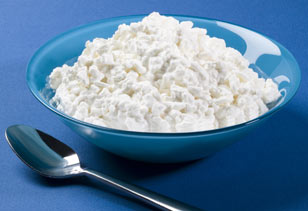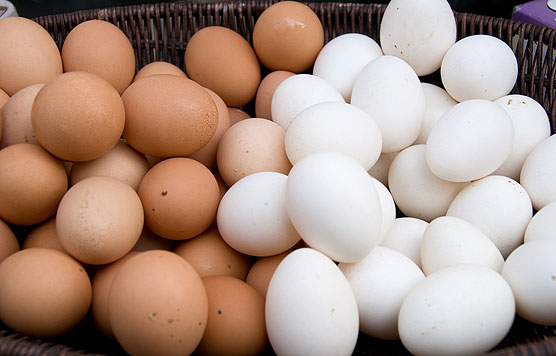In Jiu-Jitsu most of us want to cut down in weight to make the weight class below. However putting on quality muscle to go up a weight class is a tricky issue but can be achieved with the right weight training, an nutrition program. Keenan Cornelius is currently going through a serious weight and nutrition program to go from Middle to middle heavy. Check out these foods that will give you quality bulk.
Source: http://www.cutandjacked.com
The first impulse for most while attempting to add size after a prolonged diet or even during their first “bulking” experience is to immediately eat all the bad foods they can to add both quick size while also satisfying their hunger and junk food craves. This is not the best route to get the desired end result of strong lean muscles. Bulking up and adding extra muscle with minimal fat is the byproduct of increasing your training volume and your calories. Healthy bulking is all about eating an excess of the right quality foods that will minimize fat gain, maximize muscle growth, while keeping your joints, heart, and metabolism functioning in tip top shape. Here are 6 foods that will help you to accomplish a healthy bulk without the guilt.
Protein Sources
Lean beef
Lean beef can help you control your weight because it is a reduced-calorie source of protein compared to fatty beef. The lean portion of grass-fed strip steaks has only 117 calories and 3 g total fat in each 100 g portion. Some beef is higher in calories, such as ground beef, with about 260 calories per 100 g, or higher-fat steaks, with more than 200 calories. Lean beef is high in protein, a filling nutrient that can suppress your hunger and help you eat less.

Lean beef is also a natural source of creatine and one of the best sources of stearic acid, which is a unique saturated fat that has no impact on your cholesterol level.
Salmon
Protein is important for muscle growth and recovery, which is essential for bodybuilders. Salmon offers nearly the same amounts of protein as beef, chicken and pork. Salmon is low in unhealthy saturated fats, which contribute to high cholesterol, but is rich in omega-3 fatty acids. These healthy fats offer a bounty of benefits, ranging from skin and joint health to combating heart disease.

The omega-3 fats found in salmon will help fight inflammation and keep your joints pain free as your training volume increases. Salmon is also rich in some of the essential minerals like iron, calcium, selenium and phosphorus and vitamins like A, B and D. Selenium, which is very necessary for building up of tissues.
Cottage Cheese
Cottage cheese is packed with protein. Each cup provides you with 28 grams of protein, or approximately 47 percent of the daily-recommended protein intake for the average 150-pound individual, according protein intake guidelines published by the Iowa State University Extension.

Like other animal-based proteins, cottage cheese provides all the amino acids you need, making it a source of complete protein. Your body breaks this protein down into its individual amino acids, and then re-assembles those amino acids into new proteins needed to maintain healthy tissue.
Quinoa
Quinoa is a satisfying, low-cholesterol source of complex carbohydrates. Rich in fiber, it’s digested slowly and has a low glycemic index, helping you steer clear of the blood-sugar roller coaster.

Quinoa has higher protein content than wheat, barley, or other major grains. One cup of quinoa has 9 grams, which trumps the protein-rich egg (6 grams). Quinoa, which contains all 8 of the essential amino acids, is a complete protein. Its heart-healthy polyunsaturated fats will leave you feeling full while providing more nutritional content than breads or cereals made of refined grains.
Quinoa has a higher than usual protein content for a grain and one serving also packs 33% of your daily zinc needs, a nutrient essential for optimal testosterone. Getting ample starchy carbohydrates first thing in the morning and in the 3-4 hours following your training session is an essential strategy for getting the calories you need and putting those calories to work building muscle instead of having them add to your waistline.
Eggs
Eggs contain high quality protein, nine essential amino acids, choline, the right kind of fat, and vitamin D.

Although eggs received a bad reputation for a while because of high cholesterol, eggs have more nutritional benefits than health risks. Eggs are high quality complete proteins that contain all nine essential amino acids. Eggs have the distinction of being one of the only foods that naturally contain vitamin D.
Oats
This muscle building food is very nutritious. Oats contain low fat and high fiber content. Oats are a good source of magnesium, selenium, manganese and phosphorous. Oats are a good source of vitamin B1 and dietary fiber which is useful in lowering your blood sugar. Since oats provide carbohydrates slowly, they are perfect for muscle building.

The continuous provision of energy during the day through rolled oats intake ensures optimum levels of blood sugar. Oats are also high in iron and are a good source of low-fat protein. The protein in oats is almost equivalent to the quality of soy protein, and combined with the dietary fiber, makes it the ideal food to start the day with.
Fat Sources
Chia Seeds
Chia seeds are about 20% protein. They are digested and absorbed very easily. This results in rapid transport to the tissue and utilization by the cells. This efficient assimilation makes the Chia very effective when rapid development of tissue takes place, primarily during periods of growth. This would also include regeneration of muscle tissue for conditioning, athletes, weight lifters, etc.

Chia seeds are the richest plant source of Omega-3; they have more Omega-3 fatty acids than any other plant food, (the vital fats that protect against inflammation—such as arthritis—and heart disease). In fact, they contain more Omega-3 than salmon. It has approximately three to ten times the oil concentrations of most grains and one and a half to two times the protein concentrations of other grains. These oils, unsaturated fatty acids, are the essential oils your body needs to help emulsify and absorb the fat soluble vitamins: A, D, E, & K.
Avocado
The avocado’s high nutrient density makes it an ideal ingredient for bodybuilders on a closely monitored diet. It contains more than twice the calories per gram than protein or carbohydrates making it easier for you to hit your higher than normal calorie targets. Your body also creates hormones and other important signaling molecules essential for muscle growth and good health from fats.

Avocados contain high levels of monounsaturated fats which can prevent the redistribution body fat towards your abs. This will help you keep your midsection tight while your get bigger. Avocados are also a great way to get extra fiber in your diet without filling you up. Half an avocado has 160 calories, 15 grams of heart-healthy unsaturated fat, and only 2 grams saturated fat.

















